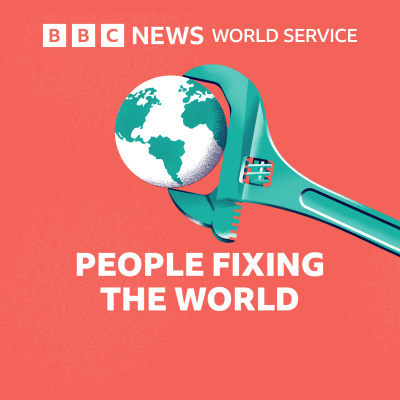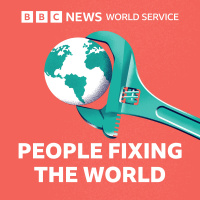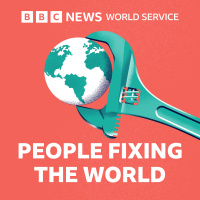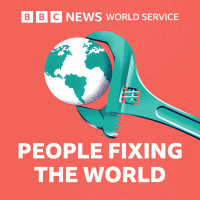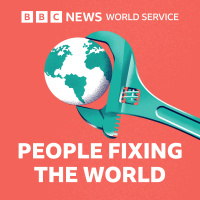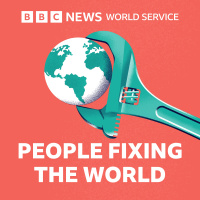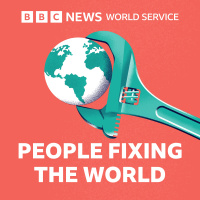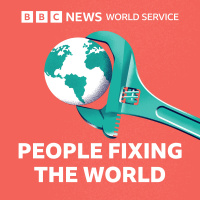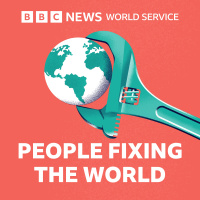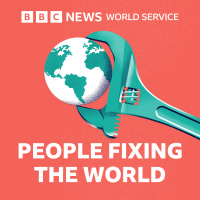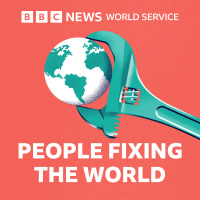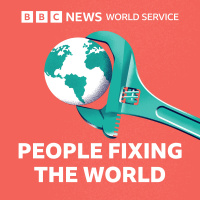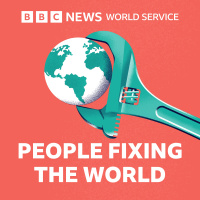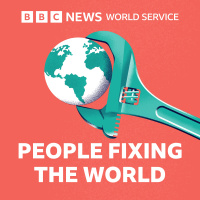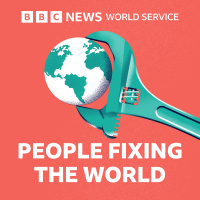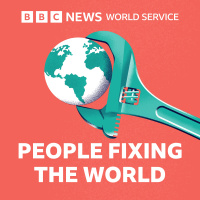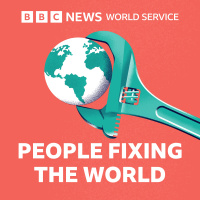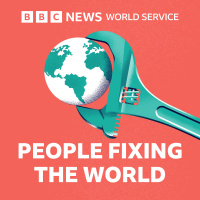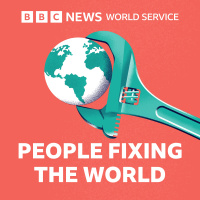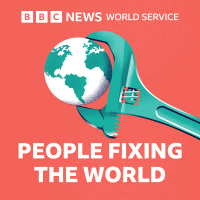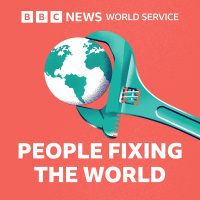Sinopsis
Brilliant solutions to the worlds problems. We meet people with ideas to make the world a better place and investigate whether they work.
Episodios
-
Turning oil platforms into reefs
11/05/2021 Duración: 22minThere are thousands of oil and gas platforms in the world’s oceans and in the coming decades many will become obsolete. Some people think that instead of treating them as industrial waste, we should embrace the ecosystems they’ve created and leave them in the sea as artificial reefs. This approach has been adopted by some US states, and scientists are considering whether this could also work in the North Sea. Produced and presented by Celestina Olulode Picture: Getty Images
-
The forest sound detectives
04/05/2021 Duración: 23minScientists are checking up on the health of forests by analysing the sounds in them. They test their vital signs by measuring the croaks, tweets and hums of resident creatures. If they can hear a full range of animals they can be confident an ecosystem is doing well. However, if gaps start to appear, it’s a sign something is up. Nick Holland hears more about how it works and how it’s being used to strike a balance between the needs of Papua New Guinea’s growing indigenous communities and the need to preserve the biodiversity of the forests they live off. Produced and presented by Nick Holland Image: The Nature Conservancy
-
The detection dogs tracking poachers and Covid-19
27/04/2021 Duración: 23minMarlo the labrador is learning how to sniff out Covid-19 in the UK. In Tanzania, Polish hound Thor is on the track of wildlife poachers. We explore how their extraordinary noses are tackling these issues and more around the globe. Produced and presented by Claire Bates
-
Pedal power: How bicycles can change lives
20/04/2021 Duración: 24minThis is the story of how one man is trying to transform lives through the power of the humble bicycle. Many rural communities in rural Africa don’t have access to cars or good roads, which can make it hard to take fresh produce to market or get to school. But Wyson Lungu wants to change that with an innovative scheme to sell affordable bicycles. We follow him as he delivers a new set of bicycles to excited customers in southern Zambia. Produced and presented by Richard KennyImage: unfoldstories.co.uk
-
Shred it yourself: The DIY plastic recyclers
13/04/2021 Duración: 23minMachines to shred, melt and mould waste plastic are popping up in workshops around the world - from the UK to Malaysia, Kenya to Mexico. The project is being led by an organisation called Precious Plastic. They put designs for the devices online for anyone to download and build themselves. More than 400 teams around the world are now taking on the challenge of plastic waste using these machines, making everything from sunglasses to plastic bricks in the process. Presented and produced by Tom Colls Image: Precious Plastic
-
Helping animals cross the road and other obstacles
06/04/2021 Duración: 23minIrrigation pipes have been designed to double as mid-air walkways to help slow lorises cross open farmland in Indonesia; and a footbridge has been built for a rare breed of monkey in Brazil - the golden lion tamarin. These are just two examples of new infrastructure designed to help wild animals cope with human obstacles. Picture credit: Little Fireface Project
-
Watching out for Gran with help from her toaster
30/03/2021 Duración: 23minAs many countries contemplate the best way to care for an ageing population, a common question is how to support the elderly to continue living in their own homes for as long as possible. One idea is to monitor their use of home appliances, such as kettles and ovens. Advocates say NILM – non-intrusive load monitoring – offers family and carers an insight into a person’s daily life without invading their privacy. It could even be used to track or help diagnose long-term health conditions. Reporter William Kremer road-tests the technology with his own parents and finds out about a NILM project in Japan. Picture: Getty Images
-
How to reuse a demolished building
23/03/2021 Duración: 23minIs it possible to construct a new building, just by reusing materials from homes and offices that have been knocked down? That’s the dream of a pioneering Swiss architect Barbara Buser, who trains specialist treasure hunters to track down everything from window frames to steel beams for her buildings. People Fixing the World finds out about her latest project, which is made of 70% reused material. We ask whether Barbara’s approach, which has a much lower carbon footprint than building with new material, can take off around the world. Presenter and producer: Charlotte Horn Image: Barbara Buser’s building K118 (Copyright: Martin Zeller)
-
Using satellite photos to help distribute cash
16/03/2021 Duración: 23minTogo has found a high-tech way to identify people who need financial help in the pandemic and send them emergency cash, using satellite photos and mobile phones.Computers search for clues in images, such as the density of buildings, roofing materials and road surfaces. They combine this with data collected before the pandemic to work out how wealthy different areas are and which ones may need financial support. Produced and Presented by Hannah Gelbart Picture: Getty Images
-
The magic greenhouse
09/03/2021 Duración: 23minA greenhouse cooled and humidified by seawater and the wind is transforming arid land. In Somaliland, vegetables have been grown in a spot previously thought too hot and dry for farming. It works by creating a cool oasis that shields the plant from the heat. The designers believe if more were built, they could make Somaliland completely self-sufficient in fresh produce. Presenter Julie Ball Written and Produced by Nick Holland and Julie Ball Picture: Karl Fletcher, Seawater Greenhouse
-
The secret to making your stuff last longer
02/03/2021 Duración: 24minThe world generates more than two billion tonnes of rubbish every year. So we’re visiting companies in Sweden that want to make it easier to mend things when they break instead of replacing them – whether that’s clothes, bikes or washing machines. We also hear about the country’s tax breaks designed to give people a financial incentive to repair more.Produced and presented by Maddy Savage
-
Tackling sport’s concussion problem
23/02/2021 Duración: 24minHead injuries in sport can have a devastating effect on the brain, which is often only noticed later in life. So lots of people are investigating ways of making it safer to play sports such as American football, boxing and soccer. We look at new technology including smart mouth guards and innovative helmets, and we find out about the latest medical developments that are helping people to combat the risk of brain disease. Produced and presented by Ben Wyatt
-
Beating superbugs
16/02/2021 Duración: 25minA small team of Indian scientists think they’ve found a new way to kill superbugs. Antibiotic-resistant bacteria are killing hundreds of thousands of people every year, and that number is going up fast. But one Bangalore-based biotech company thinks they might be on the verge of a breakthrough. Produced and presented by Jo Mathys Picture: Science Photo Library
-
How to store power in soil and salt
09/02/2021 Duración: 23minGiant towers of building blocks rising into the sky and huge vats packed with volcanic rock or molten salt are being used as massive batteries. They are the latest ideas for storing energy generated by the sun and the wind – so you can keep the lights on when it’s dark or the wind isn’t blowing. We meet the entrepreneurs and scientists who are trying to harness the fundamental forces of physics to power the world. Presenter: Tom Colls Image: The Energy Vault tower (c/o Energy Vault)
-
The breath of life
02/02/2021 Duración: 24minA clever invention is saving the lives of hundreds of children.Pneumonia kills about 1.4 million children under five every year. Treatment with concentrated oxygen could save many of them, but the machines that provide it need a reliable source of electricity. Some hospitals have frequent power cuts though, which can be fatal.So scientists in Australia and Uganda came up with an innovative way to deliver oxygen when the electricity cuts out.Produced and presented by Ruth Evans.Repeat. This episode was first broadcast on 12 May 2020.
-
The spacesuits saving mothers’ lives
26/01/2021 Duración: 23minA suit originally designed for astronauts has been adapted to save the lives of mothers who experience bleeding after giving birth. It stems the bleeding, buying time until people in remote areas can get to hospital for treatment. Produced and presented by Craig Langran
-
A forest down your street
19/01/2021 Duración: 24minForests the size of tennis courts are being planted in towns and cities around the world. They use a special method from Japan which can grow a dense forest in just a few years. At that size they won’t make much of a dent in global warming but they do have many benefits including bringing increased biodiversity into the heart of the city. Produced and presented by Richard Kenny Picture: Afforestt
-
The solutions whisperer
12/01/2021 Duración: 23minDhruv Boruah’s mission is to inspire other people to solve problems facing the planet. What’s more, he gets them to come up with their ideas in just one day. But are their solutions any good and can they survive in the real world? Nick Holland went to Dhruv Boruah’s first solutions event in 2019. Two years on, he tracks down some of the people who were there to see whether anything came of their ideas. Produced and presented by Nick Holland
-
Can doughnuts save the planet?
05/01/2021 Duración: 23minImagine a ring doughnut. This is the basis of an idea about how we could run the world in a way that gives everyone what they need - food, homes, healthcare and more - and save the planet at the same time. Economist Kate Raworth, who came up with the idea, explains how it works. And we visit projects in Amsterdam that are using the model to provide food, clothing and sustainable housing. Produced and presented by Anna Holligan.
-
What happened next to our problem solvers
29/12/2020 Duración: 24minWe revisit Lewis to find out how the hydrating sweets he designed for people with dementia have gone into production. We find out how a housing project where residents have to promise to socialise has coped with Covid. And the latest from a pharmacist in the Netherlands - after a setback, her operation to make cheap medication for her patients has started up again. Produced and presented by Claire Bates
